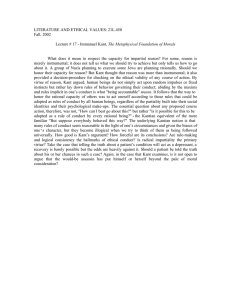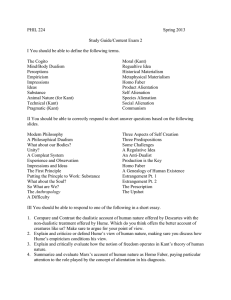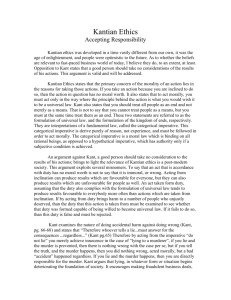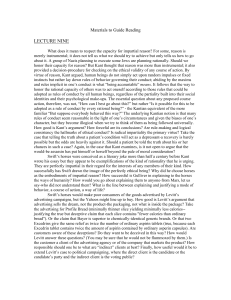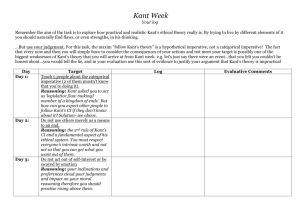Ethics
advertisement
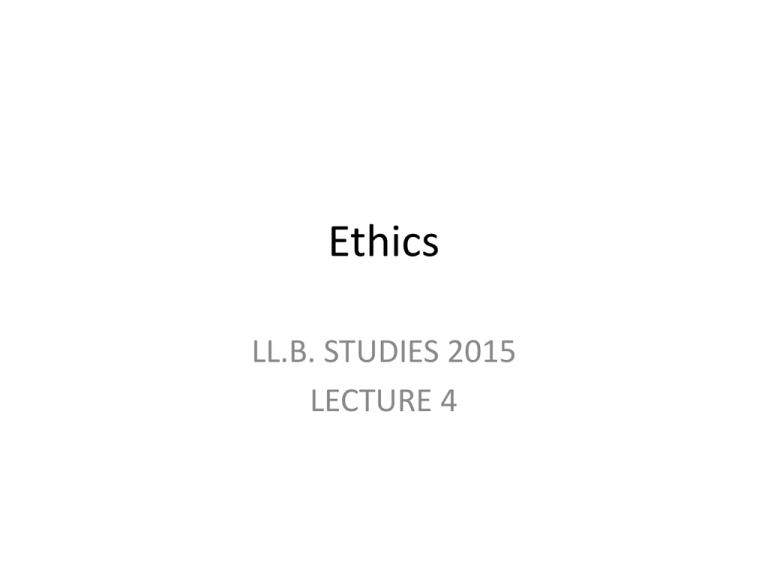
Ethics LL.B. STUDIES 2015 LECTURE 4 Deontology: Inspirations & Applications To begin… I Kant resist to show you this: http://2ryby.pl/film/piosenka-filozoficzna-kant/ Lessons from Kant The idea of autonomy of the subject Lessons from Kant Do not treat humanity instrumentally (as a means or an object) Lessons from Kant The requirement of univesalisation When can I lie? Kant, On a Supposed Right to Lie because of Philantropic Concerns Would it be a crime to tell a lie to a murderer who asked whether our friend who is being pursued by the murderer had taken refuge in our house? Kant’s three points: • Acceptance of „a right to demand that another should lie for the sake of one’s own advantage”; from this follows „a claim that conflicts with all lawfulness”. • „Whoever tells a lie, regardless of how good his intentions may be, must answer for the consequences resulting therefrom” • By telling the untruth, as far as it depends on me, „I bring it about that statements (declarations) in general find no credence, and hence also that all rights based on contracts become void and lose their force, and this is a wrong done to mankind in general.” The Trolley case revisited A Doctrine of Double Effect A person may licitly perform an action that he foresees will produce a good effect and a bad effect provided that four conditions are verified at one and the same time: • that the action in itself from its very object be good or at least indifferent; • that the good effect and not the evil effect be intended; • that the good effect be not produced by means of the evil effect; • that there be a proportionately grave reason for permitting the evil effect. Joseph Mangan, A Historical Analysis of the Principle of Double Effect http://plato.stanford.edu/entries/double-effect/ Double effect at work • Abortion vs. rescuing mother’s life • Euthanasia vs. pain relief • To torture or not to torture • Can war be just? The doctrine of just war Requirements for beginning just war (ius ad bellum) • -- Just cause. There must be a specific act of injustice to be corrected. • -- Competent authority. The decision to wage war should only be made by the person or governing body responsible for maintaining a nation's civil order and security. • -- Right intention. The intended result of going to war must be to restore a previous state of peace and civil order. • -- Last resort. All realistic nonviolent alternatives must be exhausted before going to war. • --Probability of success. There must be a realistic hope of achieving victory. • -- Proportionality of projected results. The good expected upon attaining victory must be greater than estimates of what it will cost to achieve victory. Source: Baptist Press, www.bpnews.net
